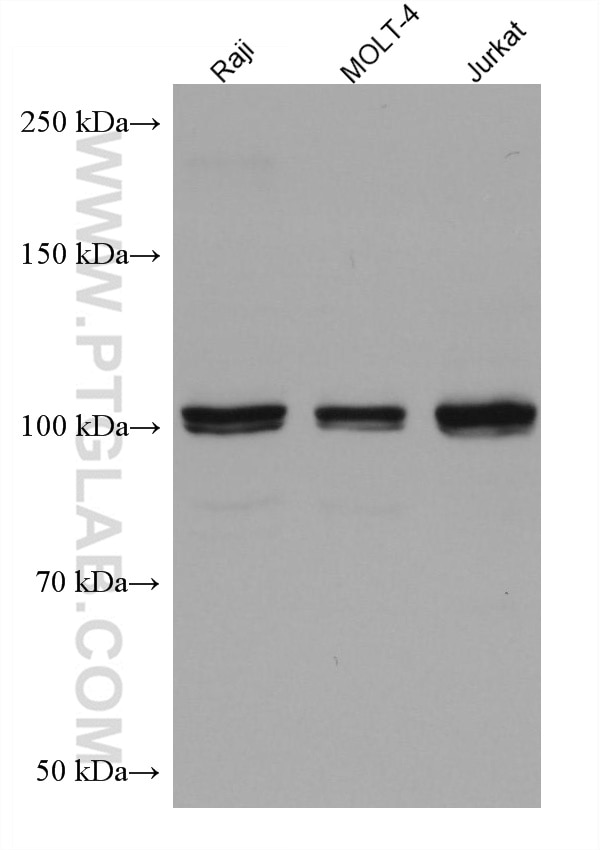Anticorps Monoclonal anti-FGFR4
FGFR4 Monoclonal Antibody for WB, Indirect ELISA
Hôte / Isotype
Mouse / IgG1
Réactivité testée
Humain
Applications
WB, Indirect ELISA
Conjugaison
Non conjugué
CloneNo.
1A2B5
N° de cat : 67800-1-PBS
Synonymes
Galerie de données de validation
Informations sur le produit
67800-1-PBS cible FGFR4 dans les applications de WB, Indirect ELISA et montre une réactivité avec des échantillons Humain
| Réactivité | Humain |
| Hôte / Isotype | Mouse / IgG1 |
| Clonalité | Monoclonal |
| Type | Anticorps |
| Immunogène | FGFR4 Protéine recombinante Ag17041 |
| Nom complet | fibroblast growth factor receptor 4 |
| Masse moléculaire calculée | 88 kDa |
| Poids moléculaire observé | 100-110 kDa |
| Numéro d’acquisition GenBank | BC011847 |
| Symbole du gène | FGFR4 |
| Identification du gène (NCBI) | 2264 |
| Conjugaison | Non conjugué |
| Forme | Liquide |
| Méthode de purification | Purification par protéine G |
| Tampon de stockage | PBS only |
| Conditions de stockage | Store at -80°C. 20ul contiennent 0,1% de BSA. |
Informations générales
Fibroblast growth factor receptor 4 (FGFR4) is a member of a highly conserved tyrosine kinase family, along with FGFR1-3. This family consists of an intracellular tyrosine kinase domain, a single transmembrane domain, and extracellular ligand binding domains (PMID:32492514). FGFR4 is the predominant FGFR isoform present in human hepatocytes. FGFR4 has been proposed to play a role in the observed induction of hepatocyte proliferation and carcinogenesis by FGF19; however, contradicting evidence proposing a protective role for FGFR4 in suppressing hepatoma progression has also been proposed(PMID:20018895). While the role of FGFR4 in cancer remains to be fully elucidated, several findings suggest that this receptor may be an important player in Hepatocellular carcinoma (HCC) development and/or progression(PMID:10336501).



